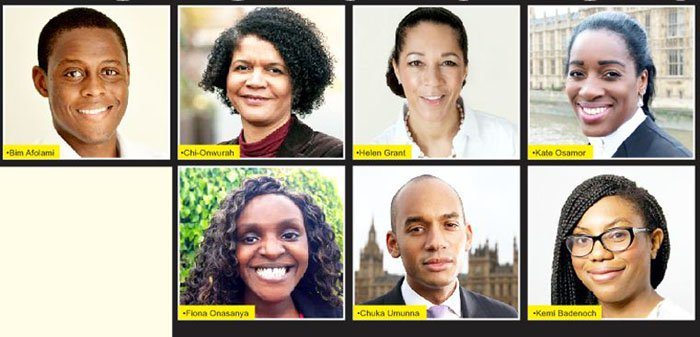World News
UK Election: Behold The Seven Nigerians That Won Parliament Seats

It is a common knowledge that Nigerians are known for excellence all over the world.
Seven Nigerians won Parliament seats in the just concluded British elections. Their victory is a boost to the Nigerian image and heritage
The seven Nigerians who won the United Kingdom parliament elections include:
Chinyelu Susan “Chi” Onwurah

Chinyelu has a Nigerian father, she was re-elected as the MP representing Newcastle upon Tyne Central constituency.
Born in April 12, 1965, Chi was first elected on the platform of Labour Party in 2010 when she became Newcastle’s first-ever black MP and she became Shadow Minister for Business, Innovation and Skills, as well as Shadow Minister for Culture, Media and Sport two years ago.
Chuka Umunna

Another re-elected British MP is 39-year-old Chuka Umunna, a graduate of Law from the University of Manchester who has been representing Streatham constituency since 2010.
Kate Ofunne Osamor

49 years old Ofunne Osamor, parents are both Nigerians, She represents Edmonton.
She read Third World Studies at the University of East London, got elected on Labour platform in May 2015 and was appointed Shadow Secretary of State for International Development in June 2016.
Among the newly-elected MPs with Nigerian heritage is a graduate of Law, Fiona Onasanya, who now represents Peterborough constituency.
Bim Afolami, who also became MP representing Hitchin and Harpenden constituency on the platform of the Conservative Party, has a Nigerian father.
Helen Grant, who made history in 2010 as the first black woman to be elected as MP on the ticket of the Conservative Party, won again this time to represent Maidstone and The Weald constituency.
Olukemi Adegoke, Olufunto Badenoch, who describes herself as being born in Wimbledon and bred up in both Nigeria and the United States, is a 37-year-old mother of one daughter.
A graduate of Engineering and Law, she is MP for Saffron Walden constituency. According to Dr. Adewole, Nigerians need to learn from the liberal democracy they claim to be copying.
In Nigeria, they would have been asked, ‘Who knows your family’? ‘Ah, you are Igbo and you have Yoruba blood with your mother known to have dated an Hausa man’, ‘You are a woman’ ‘You are too young’, ‘How much do you have?’, ‘Who is your godfather?’, You are muslim’, and so on.
Luckily for them, what mattered to the voters was competence not ethnic sentiments.
